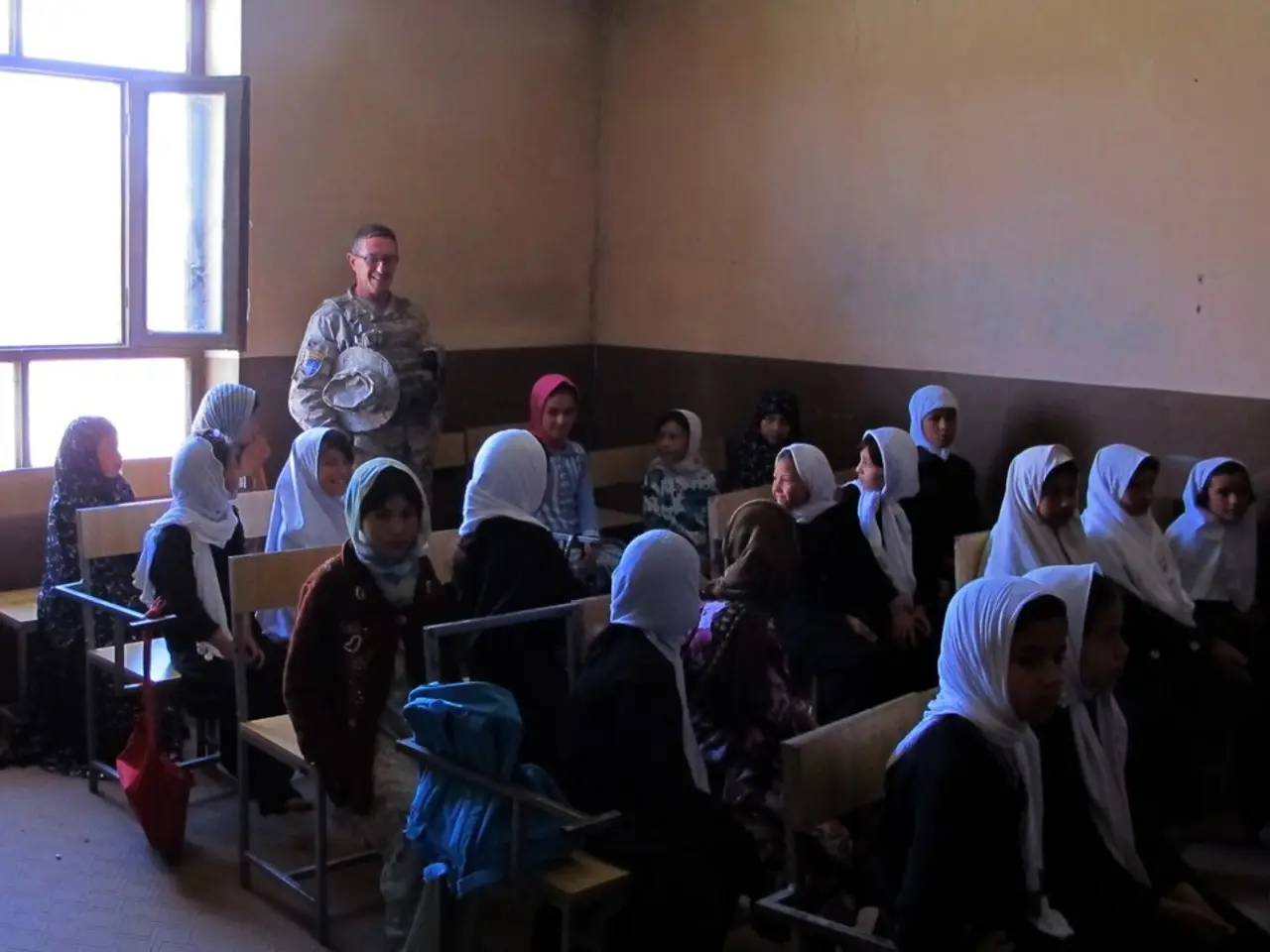Trump's impact on special education and crucial info for parents and educational institutions
The Trump administration's proposed changes to the management of special education programs have sparked concerns among various groups, including teachers unions, school district officials, and the NAACP.
The proposed shift of special education programs from the Department of Education (DOE) to the Department of Health and Human Services (HHS) has raised questions about the potential weakening of protections for students with disabilities. Experts fear that the move could disrupt program oversight, create uncertainty about service continuity, and compromise the specialized supports currently overseen by the DOE.
Concerns centre around HHS's reduced staffing capacity, the unclear fate of existing DOE staff experienced in IDEA (Individuals with Disabilities Education Act) programs, and legal questions about whether such a move can occur without Congress's approval.
The transition could negatively impact the effectiveness of inclusion efforts and the specialized supports, such as speech therapy, occupational therapy, and mental health counseling, currently overseen by the DOE. With large budget and staff cuts at HHS, there are concerns that the agency may lack the infrastructure and expertise to manage these educational programs adequately.
The uncertainty around enforcement and oversight under HHS could lead to weaker protections for students with disabilities. Advocacy groups warn that dismantling the DOE could undermine disability protections and enforcement of civil rights in education.
Families may also find themselves without the assistance they need to seek accountability from unwilling or poorly managed districts due to the loss of Education Department civil rights lawyers. Existing settlements between the federal government and local districts may not be monitored as closely due to staffing changes.
The Education Department's statistics arm has been significantly reduced, with the staff dropping from roughly 100 employees to a staff of three. The department's office for civil rights has also lost half its staff, which may lead to an increasing backlog of complaints.
The department, which funds more than 50 technical assistance centers that provide guidance, training, and information to help states and districts serve students with disabilities, has shuttered seven of its 12 regional civil rights enforcement offices.
Two grants researching school-to-work transition services for youth with disabilities have been canceled as part of the department's cost-cutting measures. The department investigates complaints that schools are violating the rights of students with disabilities, but its ability to do so may be compromised due to the staff reductions.
The Trump administration's actions threaten to return education to an "era where federal government was nearly absent and the states were left to their own devices to do whatever they want for these vulnerable student populations." The department allocates billions of dollars that schools use to provide services for students with disabilities annually, and its proposed changes could have significant and long-lasting impacts on these students.
In the midst of these changes, it is crucial to ensure that the rights of students with disabilities are protected and that they continue to receive the support they need to thrive in their education.
- The proposed shift of special education programs from the DOE to HHS has sparked concerns about the potential weakening of protections for students with disabilities, as the move could disrupt program oversight, create uncertainty about service continuity, and compromise specialized supports.
- The transition could negatively impact the effectiveness of inclusion efforts and the specialized supports, such as speech therapy, occupational therapy, and mental health counseling, currently overseen by the DOE, due to large budget and staff cuts at HHS and concerns about the agency's infrastructure and expertise.
- The uncertainty around enforcement and oversight under HHS could lead to weaker protections for students with disabilities, and advocacy groups warn that dismantling the DOE could undermine disability protections and enforcement of civil rights in education.
- The Trump administration's proposed changes to the management of special education programs and the reduction of the Education Department's staff may compromise the ability to investigate complaints that schools are violating the rights of students with disabilities, potentially leading to weaker protections for these vulnerable student populations.





